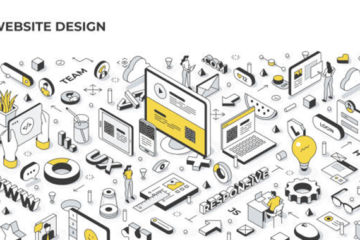Considering Updating Your WordPress Site to Gutenberg?

Ideas from your pros about WordPress 5.
For people who’ve a WordPress website, you’ve unquestionably discovered Gutenberg, WordPress’ new editor, presently as being a connect that is expected could be the default in WordPress 5.. At PMA we like to technology, and then we love NEW technology – specifically when it’ll make our client experience more seamless, and they also achieve their objectives faster and far simpler.

Wonderful this discuss Gutenberg, we sitting lower having a couple of our WordPress pros to acquire their ideas and concepts to convey.
Don’t immediately update to WordPress 5. whenever it’s launched, that’s still TBD. New releases is going to be somewhat buggy, which release won’t be any exception and perhaps worse. WordPress 5. could be a “wait and uncover” release.
While using the relieve version 5. – the Classic Editor wordpress wordpress wordpress plugin will most likely be bundled for anybody UPDATING to five.. Don’t install the classic editor wordpress wordpress wordpress plugin now – hold back until you have to do update to five. then activate the Classic Editor wordpress wordpress wordpress plugin that’s incorporated. This wordpress wordpress wordpress plugin complements a big change and you will be completely different from what’s presently found in the wordpress wordpress wordpress plugin repository.
Within our (4.9.x) kind of WordPress, Gutenberg could be a wordpress wordpress wordpress plugin, along with the ‘classic’ editor may be the standard editor. In Five.by, which is reversed. Meaning men and women not ‘have’ to begin editing in Gutenberg, even if they are doing upgrade to version 5 (although they have to download another wordpress wordpress wordpress plugin).

Gutenberg maintains several bugs, or higher precisely, interface issues to exercise. I would not be very impressed when the editor could possibly get delayed, although their bug tracker remains indicating November 27th because the release date. They’re claiming that they’re going to have a very brand-new minor release every a couple of days for the forseeable future next release. Early adopting might not be the very best for many clients.
Within the developer’s perspective, Gutenberg will most likely do well!… eventually. They are not gonna need to educate the final outcome user about short-codes. Rather, they will be using ‘dynamic blocks’ to own same factor.
Gutenberg treats pages as being a designwith text incorporated because design, less a text blog with design incorporated inside the text. This pushes people to become defacto designers, not only defacto authors.
A big plus to Gutenberg that people see initially is that you may reuse blocks. The low-side will most likely be you can create a number of these multiple-use blocks, cluttering the interface (or block panel).
Another big plus (along with a huge negative concurrently) is that you may personalize each block individually. This may lead to great searching pages from individuals who are able to design, but in addition to awful searching pages from individuals who cannot design but will be ready to ruin the look.
The low-side to all these ‘pluses’ means possible severe database pollution, so site optimizations and caching will finish off worth more, furthermore to frequent backups.
For existing sites (our pros add) users will probably be frustrated on three fronts for a while.
The very first is that it’s going to be annoying to edit existing posts and pages. Users won’t hold the ‘blocks’ that Gutenberg brags about. Gutenberg will treat existing (legacy) content when you giant ‘classic’ block. The idea looks good in writing and sounds easier to programmers, however it will not be enjoyable for those who start to make use of the block idea of Gutenberg. They’ll need to break that giant, monolithic block into smaller sized sized sized ‘real’ blocks. This may lead to inconsistencies within the page or publish, and individuals will probably start rewriting many people pages completely. Posts will not be rather badly, given that they typically do not get edited (unless of course obviously clearly they’re customized posts produced by other plugins).
The 2nd frustration will likely function as normal ‘how can i start, where’s everything’ problems. In Gutenberg, you begin typing allowing the editor know you may need a text block. In individuals days, the familiar TinyMCE editor like features appear (sentences, bullets, etc.), instead of before. Also, should you copy, Gutenberg treats each paragraph as being a block, which messes while using the way everything is copied and pasted. Something simple has become harder (although items that are complex now will most likely be simplified).
The Following frustration will most likely be plugins. Many plugins are barely maintained, or ignore maintained. Whether they have page or publish editor components, they might not get updated to help Gutenberg. Also, you will observe a slew of recent plugins to include specific functions to Gutenberg. It’ll be nature west of plugins for a while before the cream increases to the peak level.
An excellent consider!
The large tip our pros preferred to feed on – Support your website before any upgrade. However, many importantly, you cannot afford any downtime for your website, if you’re unsure whatsoever with what this upgrade can perform aimed at your web, and do not feel there’s a tech skills (or time) to fix a thing that breaks in route, please achieve to have an expert before switching.














